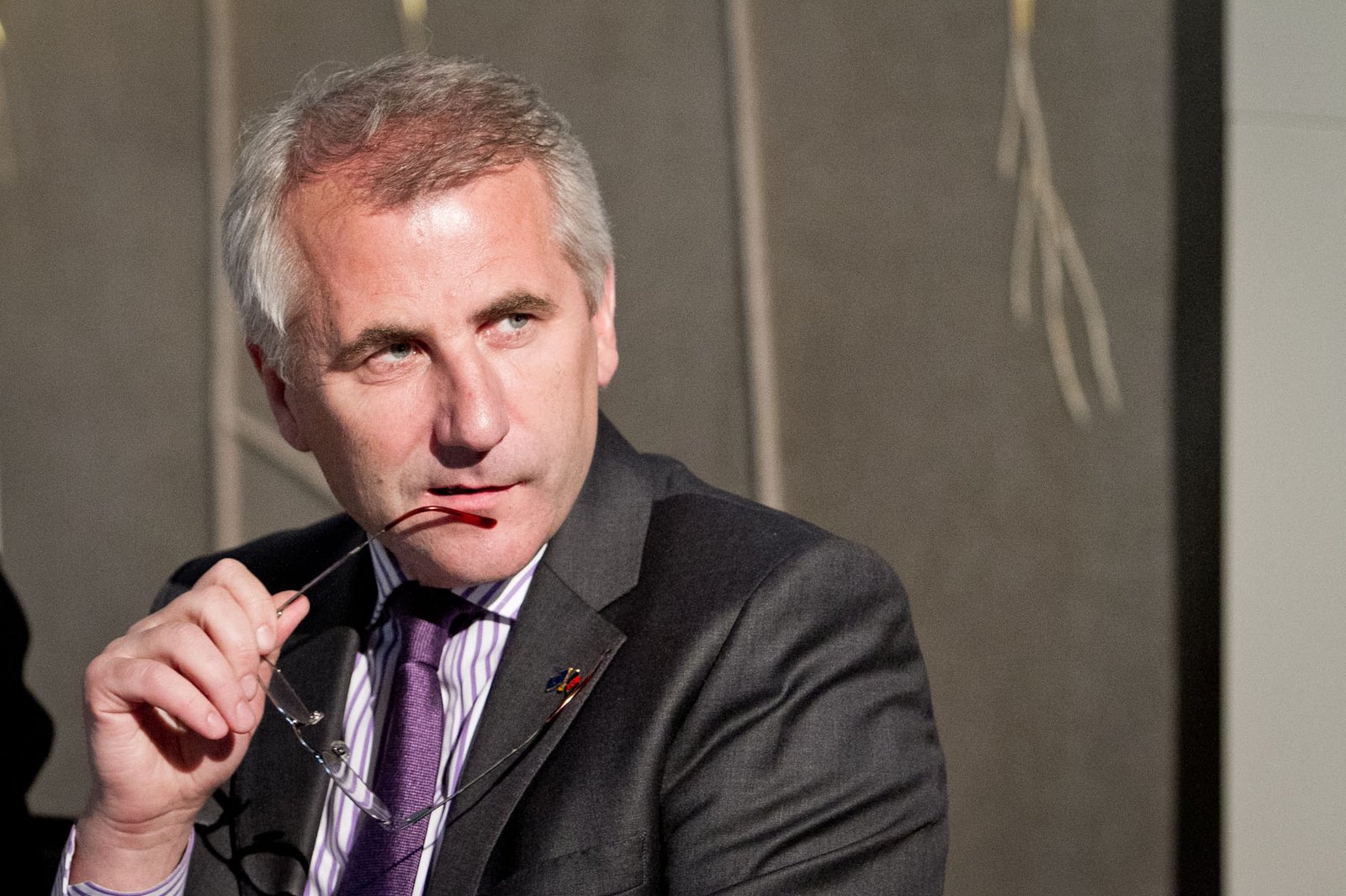

DELFI / Šarūnas Mažeika
In an interview to BNS, the Lithuanian diplomat stated that Moscow’s measures will primarily affect the people of Russia and will undermine confidence in the country as a trade partner. Ušackas, Lithuania’s former foreign minister, said the EU-Russian relations are currently at its lowest point ever.
Have Russian officials informed you in more detail about the restrictions on imports of EU agricultural and food products?
I did not speak with Russian officials today, I will do so tomorrow. What we learned we did from the press release and published resolutions, which followed the decree that [Russian] President Vladimir Putin issued yesterday. This is it for now.
Is the EU considering a possibility to turn to the World Trade Organization over the Russian measures?
Yes, without doubt, the possibility is being discussed. We will take legal instruments to defend our producers, as the EU has always done as a civilized organization that respects the superiority of the law, follows and implements international obligations. An analysis is being made before a decision is taken on the legal measures to be applied.
Secondly, the decisions made by the Russian leadership are clearly politically motivated. Thirdly, it is very clear that the sanctions taken by Russia on the EU will first of all punish Russian citizens and consumers, especially since about 40 percent of all food imported in Russia comes from the EU.
This will further undermine confidence in Russia as a reliable trade partner.
Is the damage that the EU may incur in the wake of the restrictions becoming clearer?
The EU last year exported 12 billion euros worth of food products, beverages and tobacco. After Russia specified the products that the sanctions will apply, specific calculations of the possible effects are being made as we speak.
What does the current situation say about the EU-Russian relations? Do you agree that this testifies the start of a new Cold War?
As a caretaker of the efforts to keep and develop the relations between the European Union and Russia, I regret the fact that the relations between the European Union and Russia are probably at the worst level they have ever been. It is a serious signal to Russian leaders and all of us about the current status of the relations.
Sanctions are derivative from the key fundamental issue – lack of confidence. Confidence was undermined by the unlawful actions in annexing Crimea and destabilizing Eastern Ukraine.
What is important for us is to see a partner in Russia, which we could work with together to stabilize the situation in Eastern Ukraine and implement the obligations that were discussed during the Geneva meeting and the Berlin meeting to cease hostilities, cease supplies of munitions from Russia to Ukraine, carry out disarmament and that the Russian leadership demonstrated clear political will in urging separatists in Eastern Ukraine to observe ceasefire, disarm and start negotiations under the plan offered by Ukrainian President Petro Poroshenko,
I admit it: I’m not that type of person who follows domestic and international politics…
While Prime Minister Gintautas Paluckas does not take issue with the statements made by the…
Lithuanian economists are surprised to see our country's economic growth: the Estonian economy has been…
"The fate of Nemuno Aušra (Dawn of Nemunas) in the coalition has been decided; they…
Airvolve, a Lithuanian dual-purpose aeronautics company, has successfully completed its first round of testing and…
The world is becoming smaller, more intertwined, and increasingly fragmented, with many of the previous…